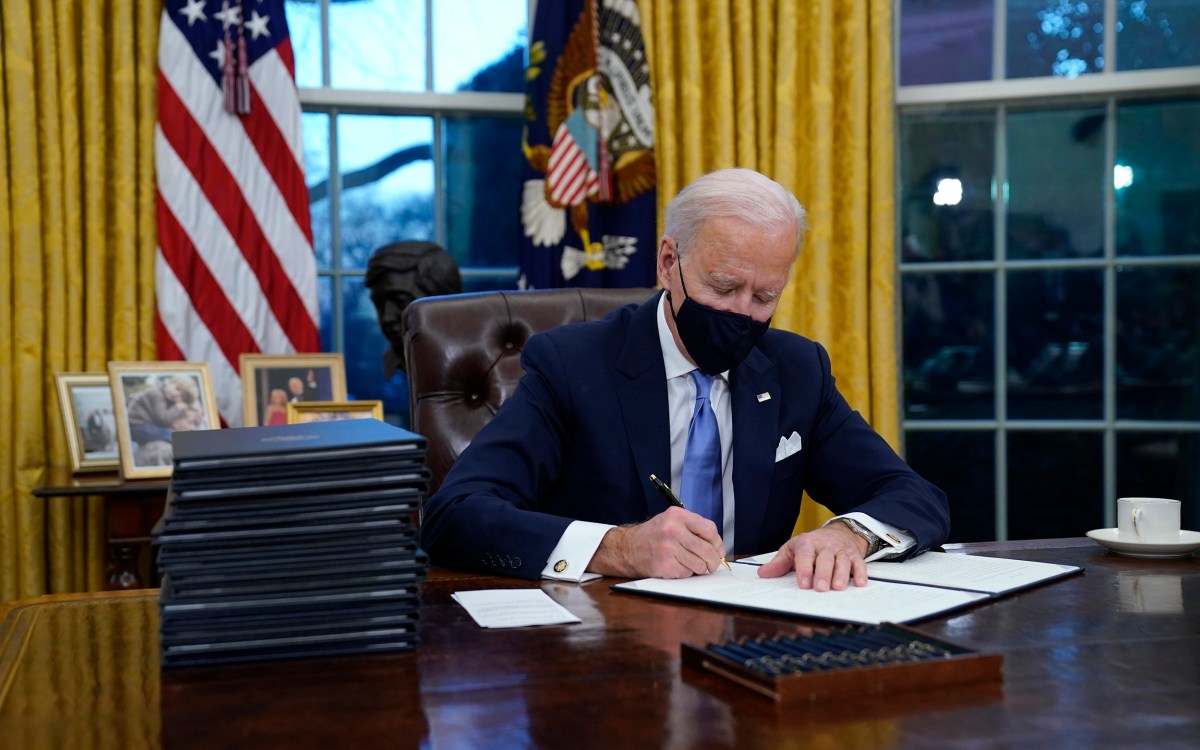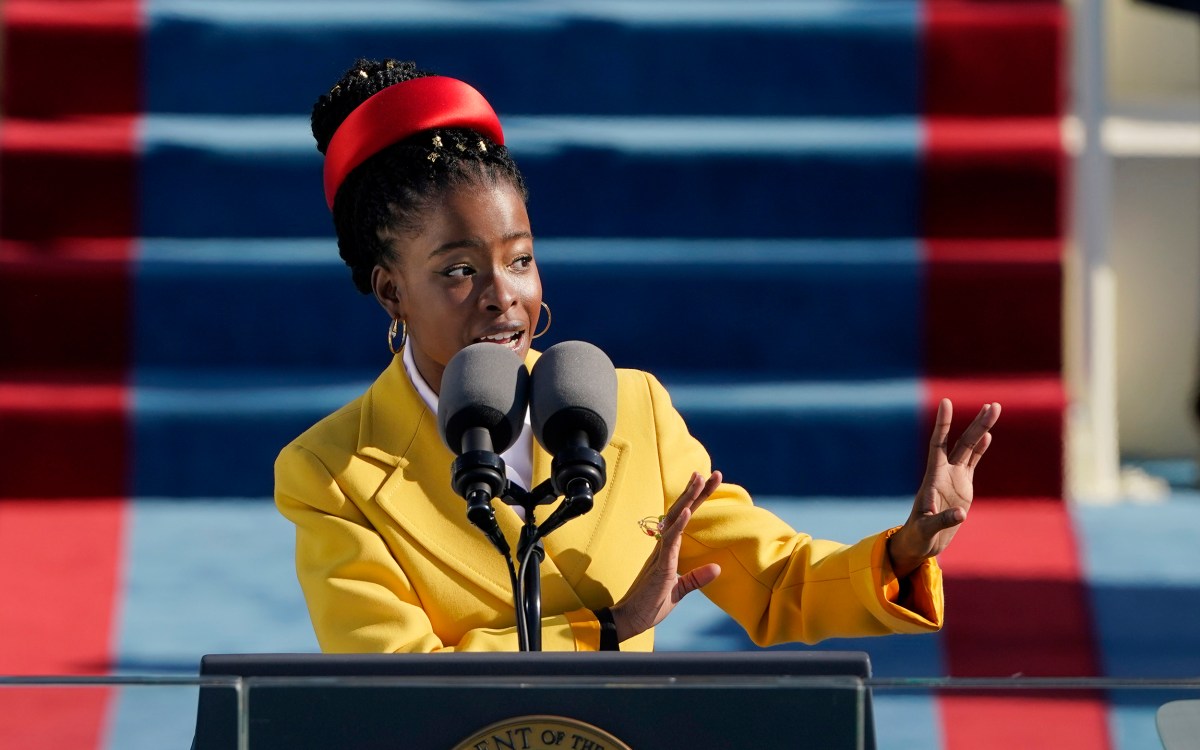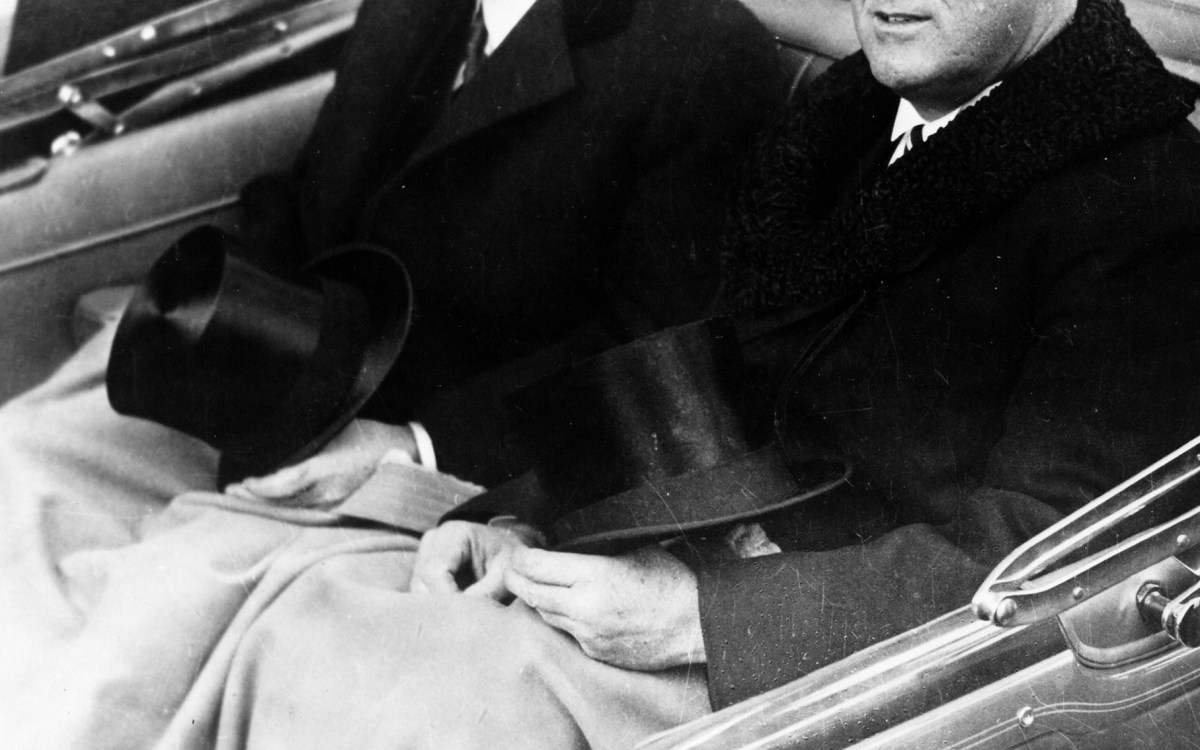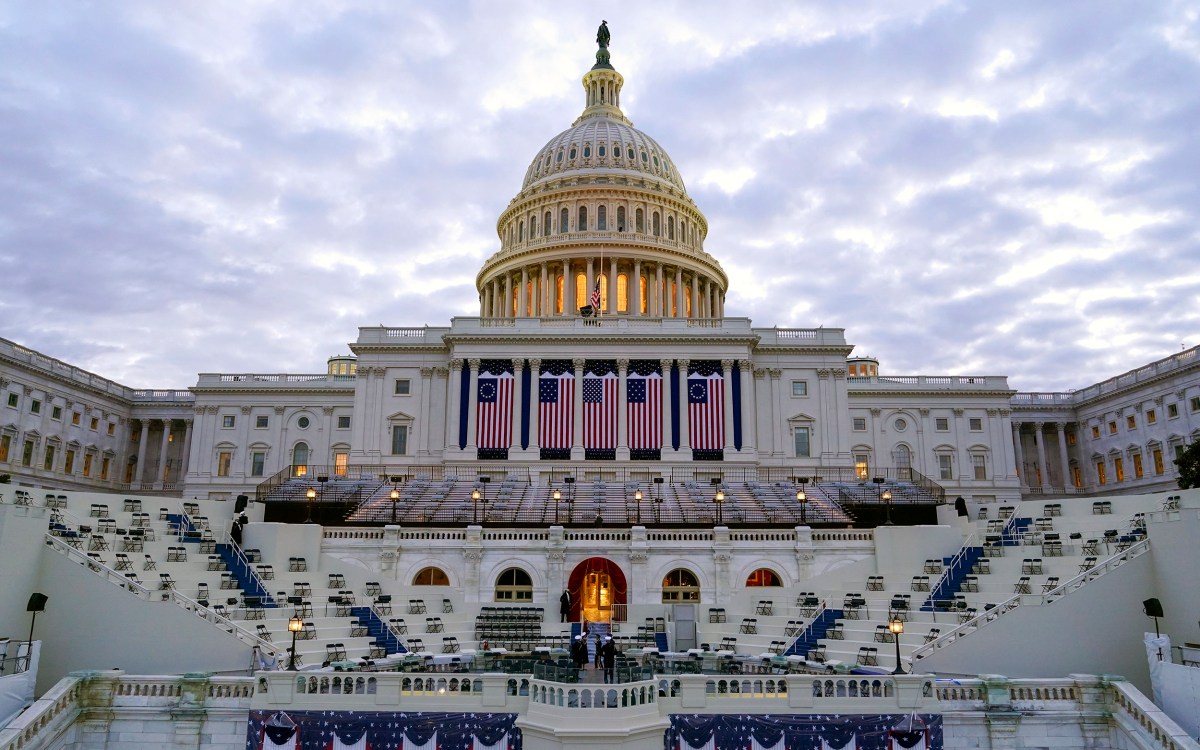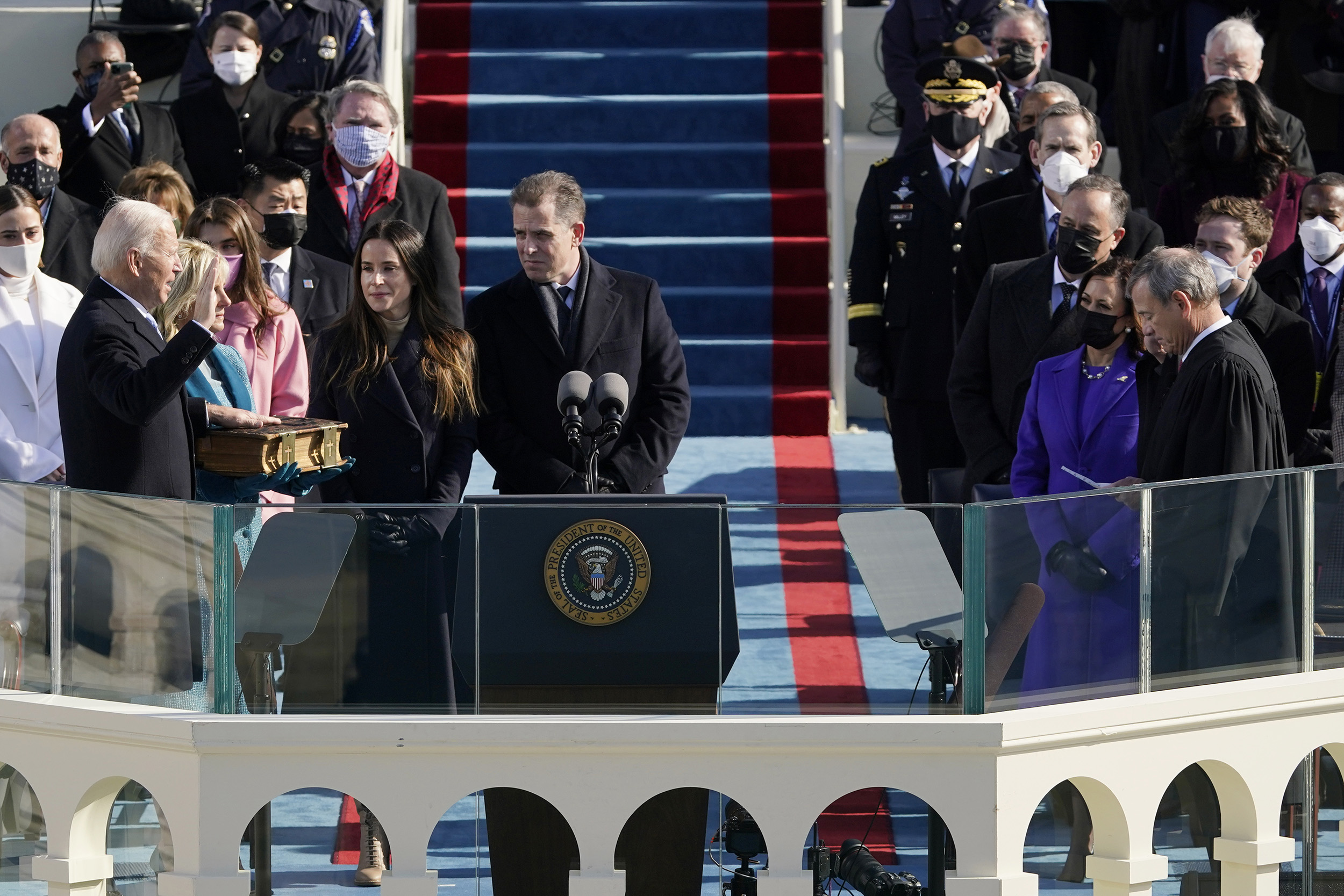
Joe Biden is sworn in as the 46th president of the United States by Chief Justice John Roberts (far right).
AP Photo/Patrick Semansky, Pool
Recognizing pain but seizing hope
Harvard community reflects on the lessons of a solemn inaugural for troubled times
Faculty and students who watched the inauguration of President Joe Biden on Wednesday said it was a powerful ceremony that recognized the nation’s political divisiveness and pandemic suffering, while also offering hope for better days.
Biden and Vice President Kamala Harris took their oaths of office at the Capitol where, two weeks earlier, there had been a riot and takeover in support of departing President Donald Trump, who lost the November election.
Philip J. Deloria, Leverett Saltonstall Professor of History and chair of the Committee on Degrees in History and Literature, said he exhaled in relief “when the ceremony came to a successful conclusion.”
“I could not watch the inauguration without a nagging sense of worry that something was going to go wrong,” he said. “Unfortunately, there are many more worries ahead and, I suspect, fewer moments of relief.”
Deloria was lifted by Amanda Gorman ’20, who wrote and read the poem “The Hill We Climb” for the occasion.
“I had chills down my spine and tears in my eyes listening to her. The poets tend to own these occasions, but it wasn’t just that. There was a triangulation of theme and affect, a transfer of energy — especially between Joe Biden’s address, her poem, and the Rev. Silvester Beaman’s invocation — that was pitch-perfect, a powerful calling into being of a shared community. From here, the luster will dim. But it was so welcome to feel it for even a moment.”
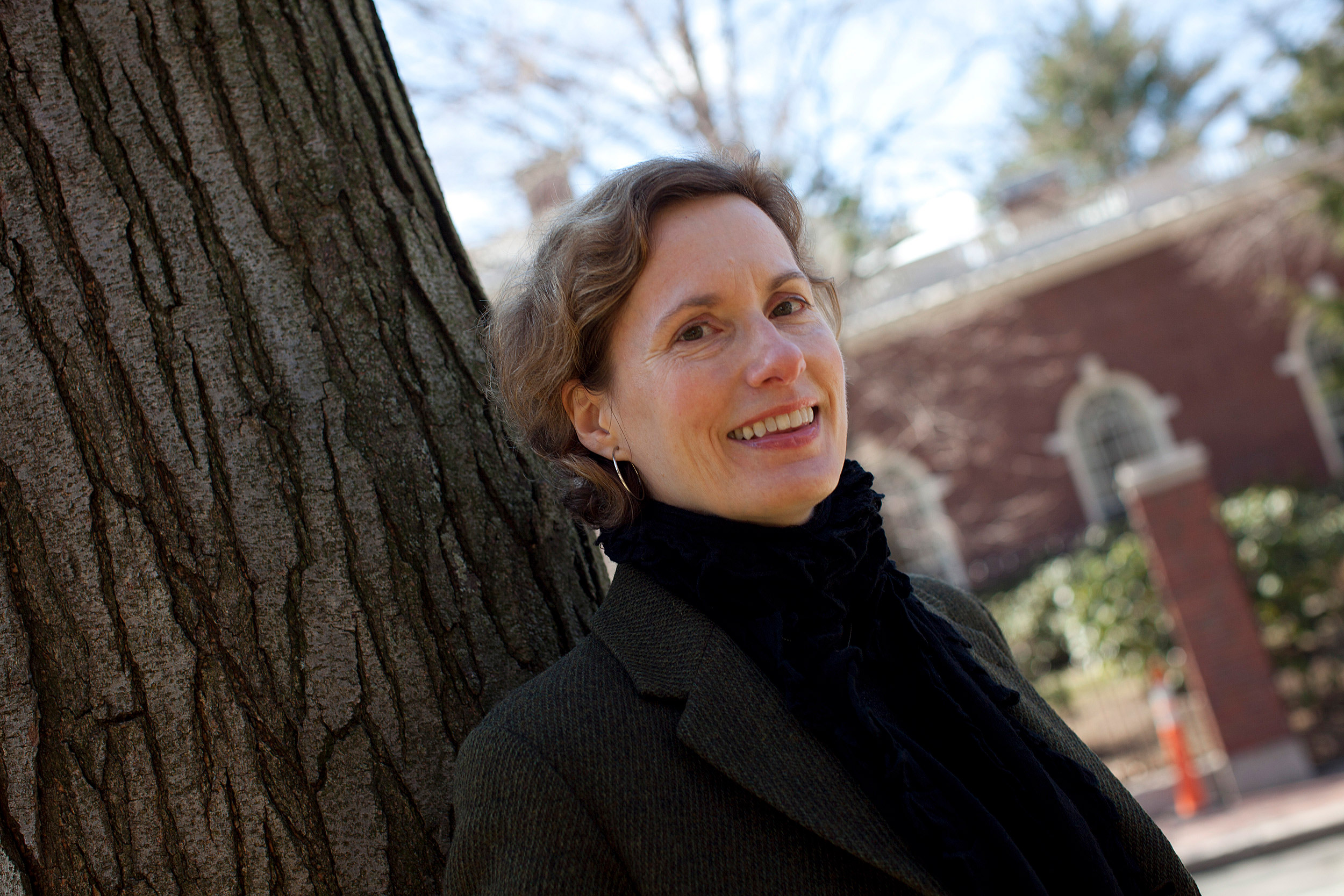
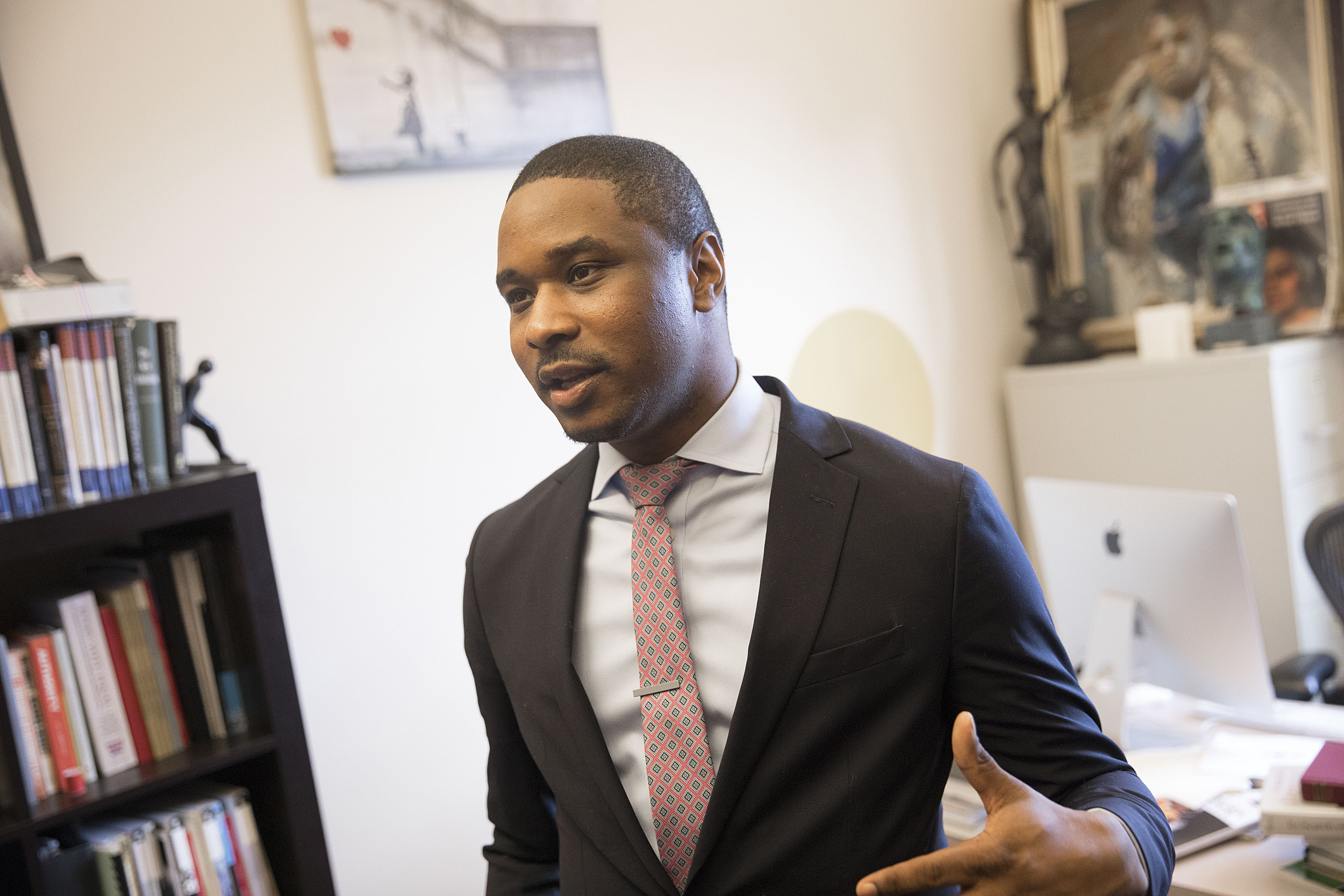
“[‘Amazing Grace’] became a Civil Rights Movement anthem, as a call for racial equality,” said Joyce Chaplin, noting it was the only song performed twice. The day’s program “was appropriately muted and self-reflective …,” said Brandon Terry.
File photos by Stephanie Mitchell and Kris Snibbe
Brandon Terry, assistant professor of African and African American Studies and of Social Studies, found Gorman’s poem and delivery wise and hoped Biden would lead by keeping its message in his thinking.
“We should not be ‘striving to form a union that is perfect,’” said Terry, quoting a favorite line from Gorman’s poem “The Hill We Climb.” “That is a fantasy of wholeness that can confuse quiet with peace, extort acquiescence to injustice, and teach us to celebrate myth instead of confront history. Instead, Gorman powerfully called us to step into our tragic inheritance and accept the responsibility of repairing it, inaugurating an era of ‘just redemption’ and democratic possibility — purposes that make our union worth our sacrifice and preservation.”
During the inaugural program, Joyce E. Chaplin, James Duncan Phillips Professor of Early American History, was struck by the performances of “Amazing Grace.”
“As far as I could tell, we heard only one song twice, ‘Amazing Grace,’ first in the U.S. Marine Band’s performance of ‘Fanfare on Amazing Grace’ and then sung by Garth Brooks. The hymn’s lyrics are by John Newton, an 18th-century enslaver who became an abolitionist. His words ‘a wretch like me’ acknowledge the human ability to sin, to do wrong,” Chaplin said. “The song became a Civil Rights Movement anthem, as a call for racial equality. I think the Biden-Harris administration, in repeating this song, was saying, loud and clear, that the United States’ original sin is white enslavement of Black people. And, historically, this is true, despite all the attempts in the last four years to say it isn’t.”
Terry noted that the overall tone of the day’s program “was appropriately muted and self-reflective about what has brought our aspirational democracy to the crises that threaten its persistence.”
“Progressive politicians usually speak in grand, sweeping terms about the arc of the moral universe or paint romantic pictures of American history, but Biden rightly foregrounded that ‘our history has been a constant struggle between the American ideal that we are all created equal, and the harsh, ugly reality that racism, nativism, fear, demonization have long torn us apart.’ More profoundly, he called this battle ‘perennial’ and reminded people that ‘victory is never assured.’”
John Stauffer, Sumner R. and Marshall S. Kates Professor of English and of African and African American Studies, saw the historical connection between Biden’s inaugural address and that of Abraham Lincoln during his first swearing-in in 1861, noting similar calls for togetherness and a recognition of the tenuousness of the institutions of the day.
“Both speeches emphasize the theme of unity amid deep division or disunion, while also acknowledging the fragility of democracy,” said Stauffer. “Biden connects our moment to Lincoln’s by referring to ‘this uncivil war’ while also emphasizing national unity.”
Stauffer also saw a through line in the circumstances of the inauguration. Lincoln delivered his address a month after the formation of the Confederacy, and Biden spoke two weeks after the insurrection in the Capitol.
“Biden borrowed from Lincoln’s elegant ending to his speech when he said ‘The better angels of our nature have always prevailed,’” said Stauffer. “Few Americans believed that national unity would prevail in the spring of 1861. Few do today. Still, it’s a noble gesture.”
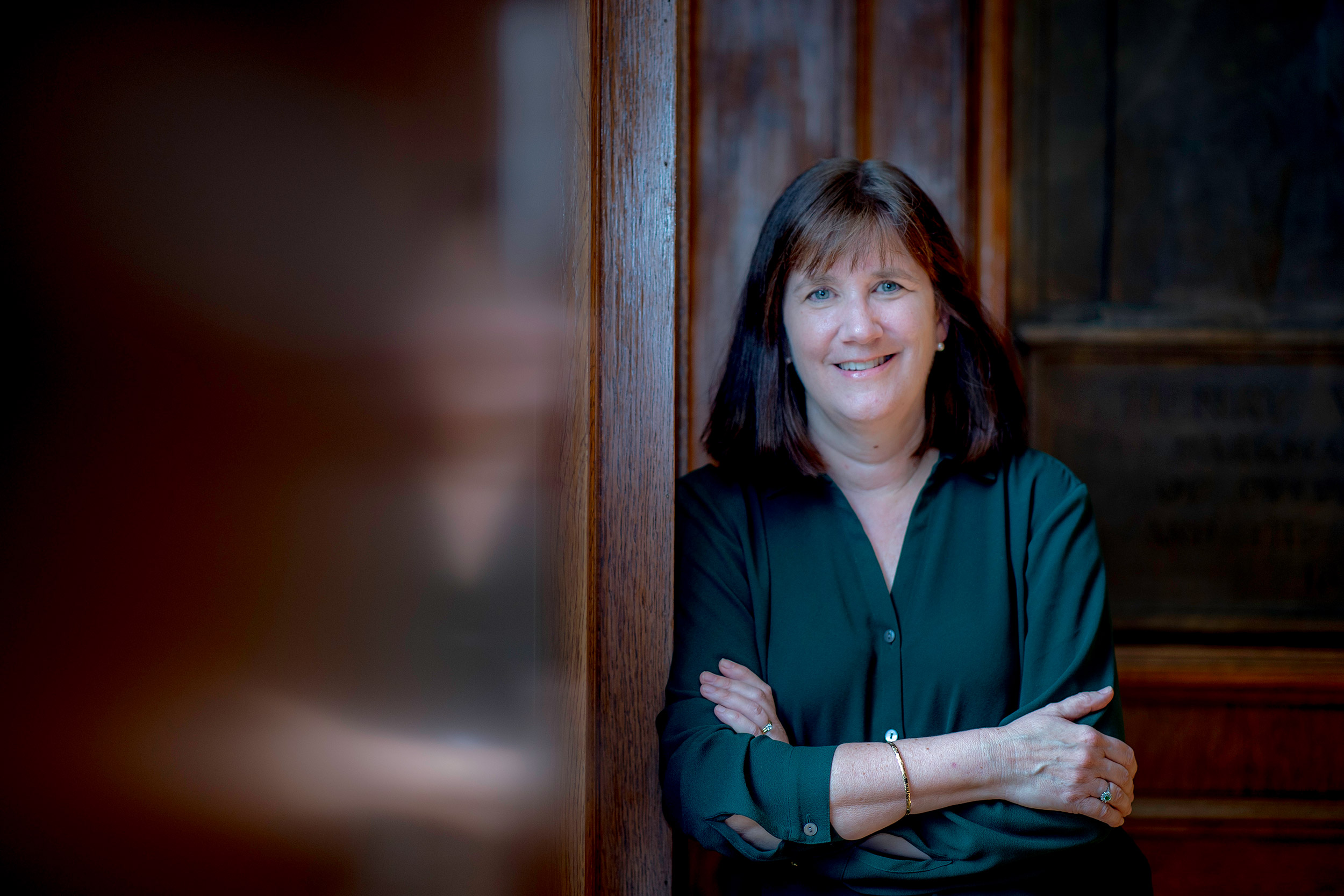
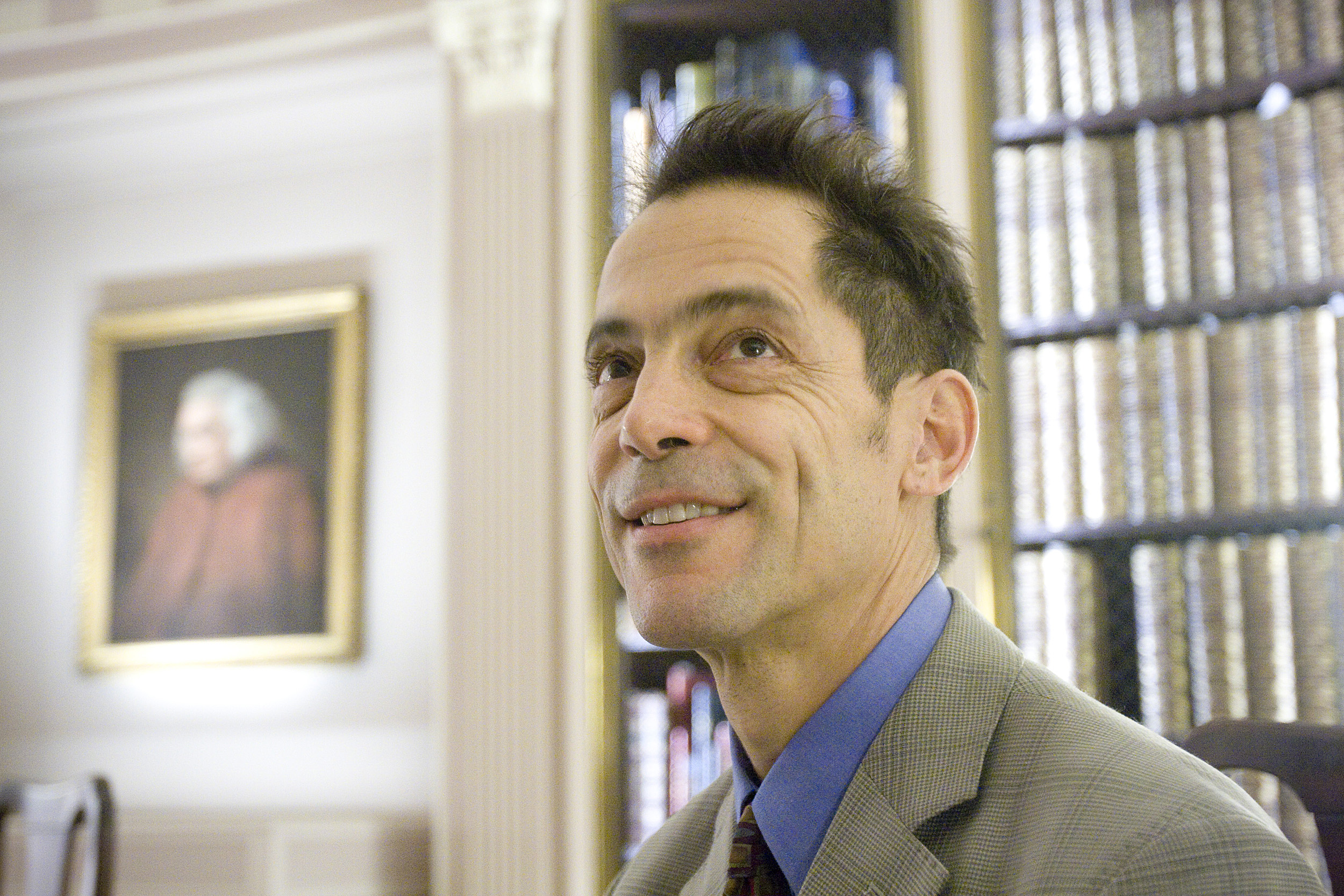
Catherine Brekus and John Stauffer focused on the messages of national unity.
Photo by John Deputy; Kris Snibbe/Harvard file photo
Catherine Brekus, chair of the Committee on the Study of Religion and Charles Warren Professor of the History of Religion in America, was struck by the inclusive tone set by the clerical leaders.
“Father Leo O’Donovan and the Rev. Silvester Beaman used their words to create unity,” she said.
Brekus said O’Donovan and Beaman did this by acknowledging the nation’s failures to uphold its promises of equality and freedom. Beaman preached: “In you, oh God, we discover our humanity. In our humanity we discover our commonness, beyond the difference of color, creed, origin, political party, ideology, geography, and personal preferences.” O’Donovan similarly avoided an overt reference to Jesus and pointedly defined American patriotism as “care for the common good with malice toward none and with charity for all.”
That was a shift from the religious leaders at Donald Trump’s inauguration, who explicitly offered words of prayer in the name of Jesus, including Franklin Graham, a controversial evangelist who once described Islam as an evil religion.
The prayers offered by O’Donovan and Beaman ultimately “reflected Biden’s desire to overcome religious as well as political divisions and to unite people in service of the common good,” said Brekus.

“President Biden talked a lot about unity, and I think that his ability to unify us will define his presidency,” said Evan Jolley ’24. Jon Chase/Harvard Staff Photographer
Jon Chase/Harvard Staff Photogra
Many students on campus said the day’s ceremonies and their significance gave them a sense of both optimism and relief.
“It was symbolic of — hopefully — a shift that will come about with it,” said Evan Jolley ’24 from Omaha, Nebraska. “President Biden talked a lot about unity, and I think that his ability to unify us will define his presidency.”
Jolley, who watched the speech with his mother while moving back onto campus for the spring semester, thought the speech stood out for another reason, as well. The new president had to overcome a stutter, as Jolley did, and deal with what can be a self-limiting condition.
“It is so incredible to have a person who stutters as the president,” Jolley said. “I really would have benefited from seeing that as a kid who stuttered, and I hope all the kids who stutter in our country are more proud of their voice after seeing Biden elected as president.”
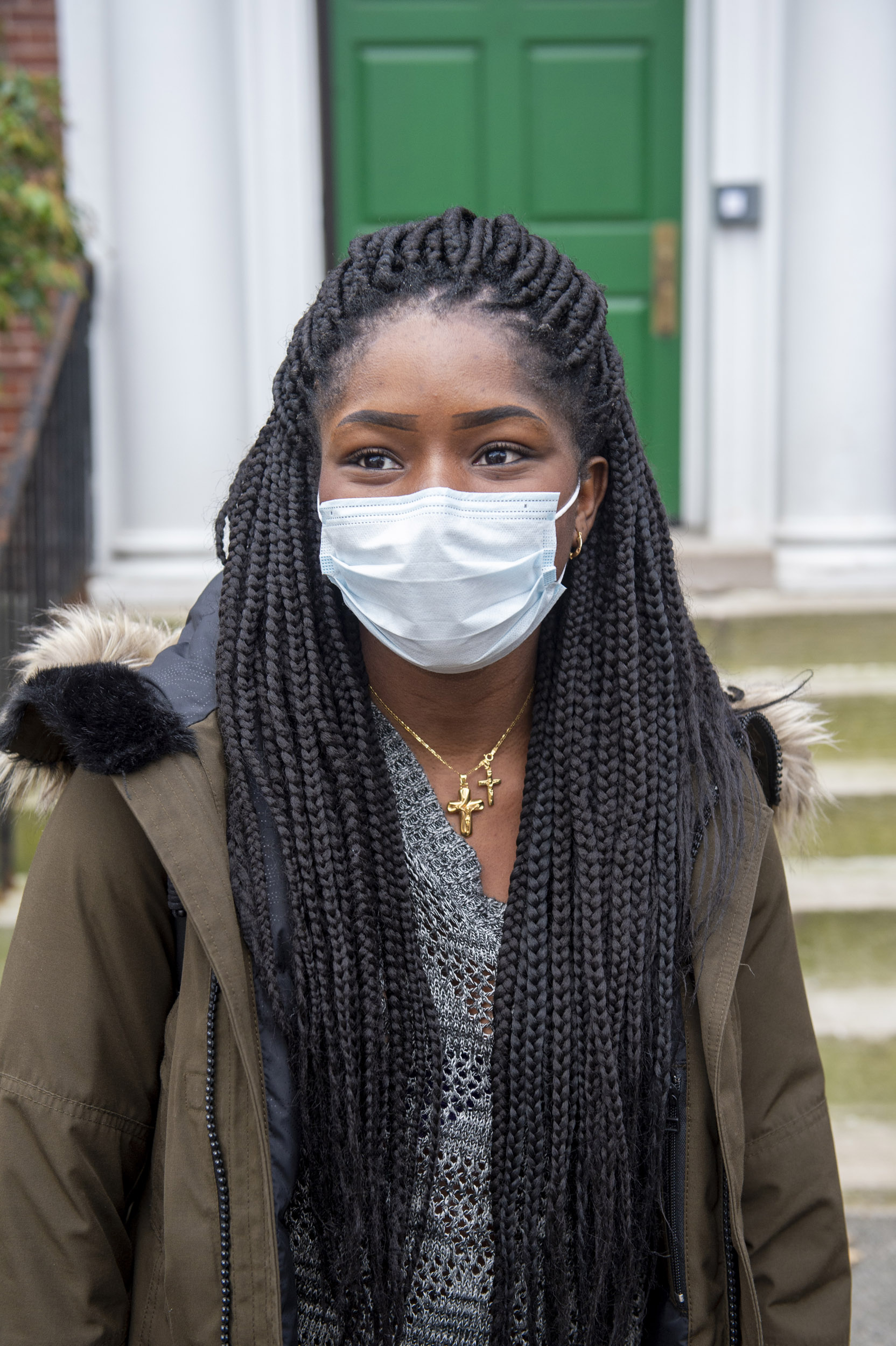
Toluwalope Moses ’22 listened to her former classmate, Amanda Gorman, recite her poem “The Hill We Climb,” calling it “absolutely stunning.” Jon Chase/Harvard Staff Photographer
Jon Chase/Harvard Staff Photogra
Boston native Toluwalope Moses ’22 watched snippets of the swearing-in, but said she caught the major moments she wanted to see, including the arrival of Michelle Obama (in a show-stealing belt), and the reading by Gorman, with whom she had a class last year.
“It was really cool to see her on screen,” said Moses, who called “The Hill We Climb” “absolutely stunning.”
“She really is an incredible writer. I don’t think they could’ve chosen anyone better. She really found a stirring way for us to envision an America beyond the present.”
Like Jolley, Moses appreciated Biden’s speech but noted she wants more than words. “I like to see more action than speaking,” she said.
Other students shared Moses’ desire to see follow-through from the new administration, even if they missed the bulk of the day’s events while traveling back to campus.
Kym Wimberly ’22 was flying in from New Orleans when Biden was sworn in. He planned to watch the highlights later but said that, as an African American man, he was ready to put the past four years behind him.
“I want to see change,” Wimberly said. “I want to move from that phase and put it past us and get to a new America.”



